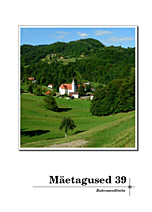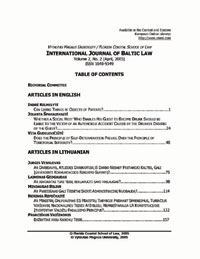Can living things be objects of patents?
Author(s): Indre Kelmelyte / Language(s): English
/ Issue: 2/2005
Keywords: living; things; objects; patent
As the technologies, including recent developments in biotechnological industry, constantly evolve, the laws or the case law need to adapt to those challenges.
At first, the Courts in the United States were reluctant to issue patents on living inventions, arguing that they contradict the product-of-nature doctrine, do not satisfy requirements of enabling disclosure or their reproducibility is doubtful. But it was the biotechnologist’s argument (that a genetically modified bacteria was man-made), which persuaded the Judge. Since then the USPTO was considering “anything under the sun that is made by man” as patentable objects, if the invention meet other requirements. Thus, in the United States judiciary construed requirements of patentability broadly, to expand the patentable subject matter. Specific problems were also solved by introducing the Plant Patent Act and the Plant Variety Protection Act. The only demerit of such a legal framework – its’ complexity, but on the other hand, it gives a choice for inventor.
One of important difference between two patent systems is that in Europe statutory “ordre” public and morality provision is a strong and separate ground to reject a patent concerning a living invention. Also, plant and animal varieties were expressly excluded from patentability under the European Patent Convention. The European Patent Office decided to interpret this exception narrowly, stating that plants and animals per se can be objects of patents, if they don’t embrace varieties. The term variety generated much controversy and a clear definition is not provided up to today. Thus, the logical suggestion would be to repeal this exception or to pass a special law on patenting living things.
Expansion of patentable living objects was gradual: first of all, patents on bacterium were issued, later followed plants and multi-cellular organisms, and in 1988 Harvard mouse – the first animal was patented. But hypothetical application for a human clone would result in a patent prohibition in Europe, and in the United States. Though, the arguments would be different.
The hypothesis that living things can be objects of patents was partly sustained, as patentability of bacteria, plants and animals is allowed, but if somebody would try to patent a human clone their attempts would fail, as a human clone can’t be an object of a patent.
More...


